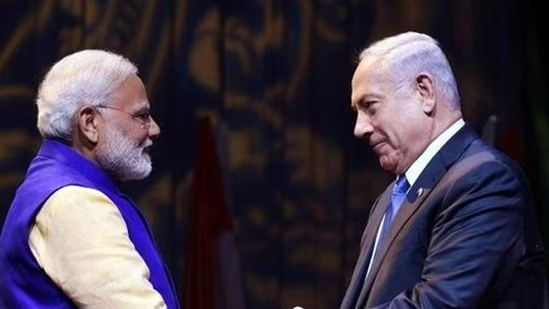Disha Tandon, Pune
In one of his most significant diplomatic outreach efforts, PM Narendra Modi spoke with Israeli Prime Minister Benjamin Netanyahu on September 30, 2024. With rising tensions in the Middle East, Modi urged that this region must not let things continue further, as “terrorism has no place in our world.” This is against the backdrop of increasing Israeli military intervention in countries like Lebanon, where Hezbollah forces are being targeted amidst a fear of a war of greater scale.
This statement by Mr. Modi came after airstrikes killed some ranking officials and the leader of Hezbollah, Hassan Nasrallah, which raises an alarming situation, with reports that Israel is preparing for a ground invasion. There are reports claiming limited action is being taken to dismantle militant infrastructure along the northern border.
He reassured India’s commitment toward supporting efforts for the restoration of peace and stability in the region. He laid emphasis on hostages taken by Hamas during the ongoing conflict and stated that all of them must be brought back home in a safe manner because it had begun with Hamas attacks on October 7, 2023. There are about 100 hostages still held by Hamas, and the humanitarian situation remains critical.
To these messages of concern by Modi, Netanyahu reassured him that Israel remains steadfast in the protection of its people, reiterating again that “there is nowhere in the Middle East beyond Israel’s reach.” On this backdrop, Israel remains firm on its stance against Iran and its proxy forces: all signs are pointing to a highly aggressive military posturing amid rising tensions.
This conversation forms part of a backdrop that involves a year of violent conflict, in significant part between Hamas and Hezbollah. The whole region has been affected since the outbreak of violence in October 2023, where Hezbollah has upped its military activities pledging solidarity with Hamas and increased attacks against Israeli positions.
The initiative is part of India’s more general diplomatic thrust within the region, in keeping its relations with Israel and Palestine in balance. Modi recently met Palestinian Authority President Mahmoud Abbas during the UN General Assembly, showing deep concern for the Palestinian people and reiterating his commitment to a two-state solution. India has rejected demands to take a stronger stance against Hamas and did not declare it a terrorist organization.
As the situation unfolds, India has also issued travel advisories for its citizens in Lebanon, asking them to leave the country amid escalating violence. With approximately 3,000 Indians in Lebanon, this crisis comes with an added human dimension complexity.
The Modi-Netanyahu dialogue also asserts India’s role as an intermediary in the Middle East: a strong voice for peace and balancing strategic interests in the region. As tensions begin to mount, it is when diplomacy becomes ever more critical, an effort to avoid further chaos.
